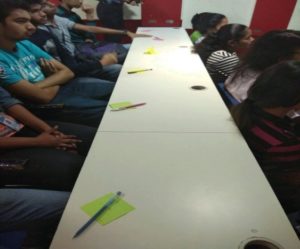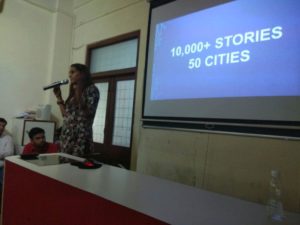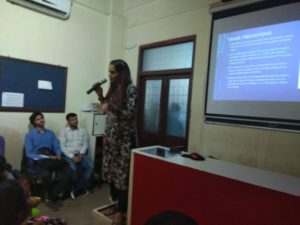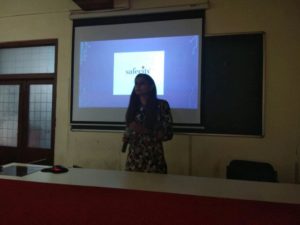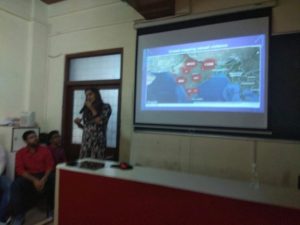Situational Awareness and Safety
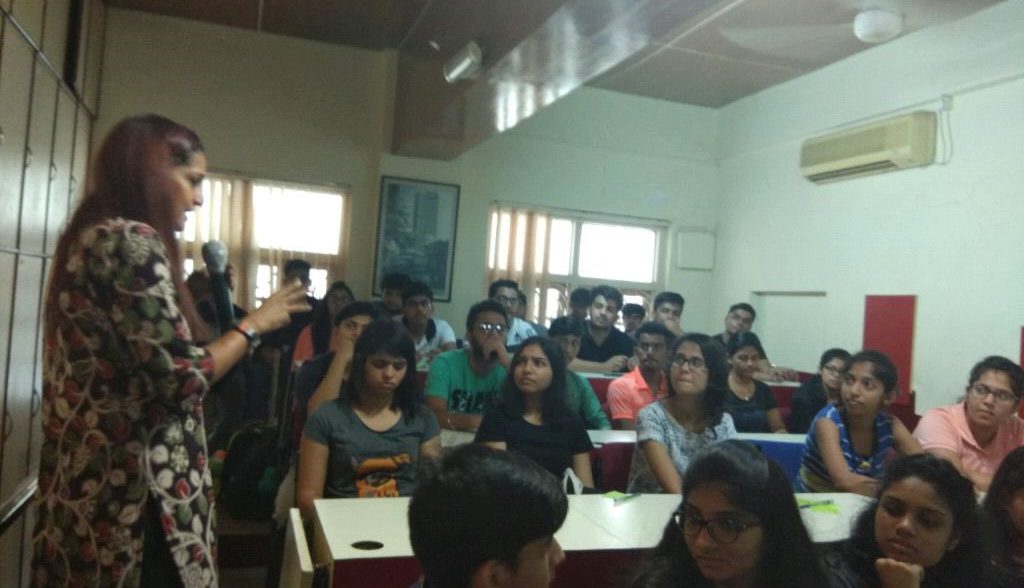
Ashwini Syed recently conducted a workshop at HR College, Churchgate on 7th Sept, 2017. The Hostelites Association of HR College, a club dedicated to help students from outside the city in finding accommodation within the city via a recommendation letter. The head of the club, Dr. Rani Tyagi and head students Prince Jain and Ashay Porwal successfully organised the workshop along with Speaker Ashwini where she spoke at length about “How outstation students should keep an eye out for their safety”
The students attending the workshop were asked the following key questions:
1) What makes you feel safe ?
2) What makes you feel unsafe ?
3) What precutions you take to keep yourself safe ?
The students wrote down their answers to the above questions on post-its.
Some of the most popular answers for places that made the students feel safe included localities and familiar surroundings, their family and friends. While lots of students felt safer in groups with like/broad minded people, for others money, food and fully charged cell phones made the students feel safer.
While familiar faces made people feel safer, unknown persons following them unnecessarily made a lot of students feel unsafe. Other popular answers included overcrowded areas, isolated localities, and random strangers staring with bad intentions.
Ashwini interacted with each student personally. She portrayed a clearer picture by giving examples.
The workshop further concentrated on some key topics that are often asked such as, whether crowds are safe or unsafe. She also spoke of how comfort is associated with safety.
As this workshop was particularly for outstation students, they were also asked what Mumbai was for them. Some of the most common answers included Bollywood, Culture and the Cosmopolitan crowd.
During the second half of the workshop, the students were asked whether their parents had freely allowed them to come to Mumbai for studies. While most parents did and the ones that did not cited reasons crowded trains and lack of proper accommodation.
The next topic the speaker spoke about was the ‘Advantages and Disadvantages of exposing oneself in crowd.’ Often, students get distracted with their gadgets and sometimes forget their surrounding exposing them to the risk of getting sexually harassed. This fact about Situational Awareness was touched upon when Ashwini spoke about technology such as cell phones acting as distractions. The students were suggested to focus on their surroundings rather than their phones in order to minimise risk and maintain safety.
This was followed by another discussion about Sexual Harassment, where the students were questioned about their understanding of Public Spaces. Ashwini explained what Sexual Harassment was and provided the students with substantial information supported by statistics.
While on the sensitive subject of Sexual Harassment, the students were also asked about their experiences with Sexual Harassment and whether they reported it. Majority of the students admitted to feeling helpless about reporting the harassment as otherwise harmless acts such as staring, unfortunately did not count as harassment. They were reassured by Ashwini about the importance of reporting the crime and that “Nothing is Minor” .
Ashwini then concluded the workshop by talking about Safecity which allows students to place a complaint anonymously. If they ever need to report an incident of inappropriate touch, starring, vulgar comments etc, they can do so by naming the place where the incident took place by pinning the area which would then show a Red Dot. This would also allow them to have prior information about a place they might be unaware about and could take appropriate safety precautions before visiting the place.


